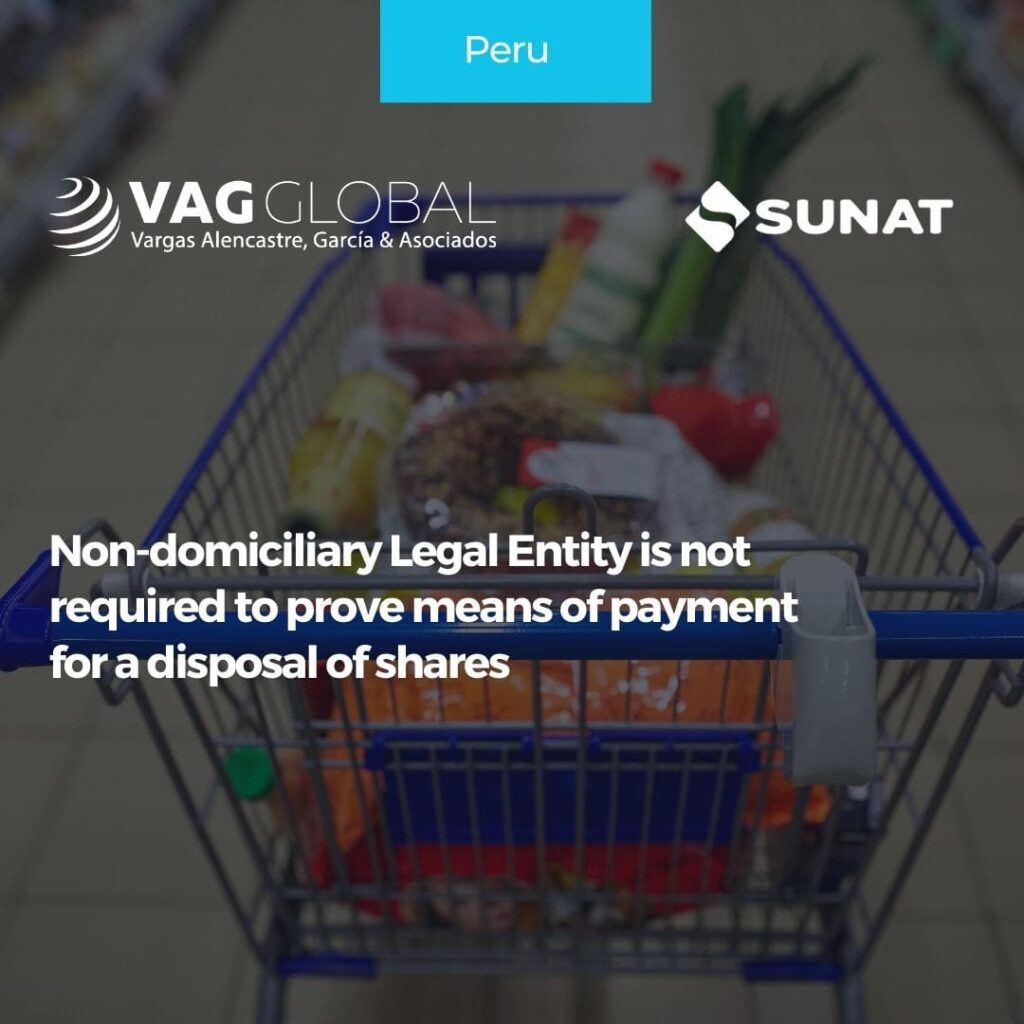Through Report No. 89-2021-SUNAT/7T0000, a criterion is established concerning the requirement to prove the use of means of payment to the Non-Domiciled Legal Entity that acquires shares -directly or indirectly- from a domiciled legal entity before January 1, 2004, to support the computable cost for the acquisition of such shares on the occasion of their subsequent disposal.
1. Analysis
Income Tax
According to article 6 of the Income Tax Law, all taxable income obtained by taxpayers who are considered domiciled in the country, according to the Income Tax Law provisions, regardless of the nationality of individuals, the place of incorporation of legal entities, or the location of the producing source, are subject to income tax.
Likewise, in the case of taxpayers not domiciled in the country, income tax is only levied on taxable income from Peruvian sources.
In this regard, to identify what is a taxable income from a Peruvian source, it is necessary to refer to Articles 9 and 10 of the aforementioned legal provision.
On the one hand, subsection h) of Article 9 of the Income Tax Law establishes that income from Peruvian sources is considered “obtained from the disposal of shares or stock redemption and participations representing capital, investment shares, certificates, securities, bonds, and commercial papers, securities representing mortgage bonds, bearer bonds or other bearer securities and other mobile securities when the companies, corporations, investment funds, mutual funds of investment in securities or trust funds that have issued them are incorporated or established in Peru.”
On the other hand, Article 10, paragraph e) establishes that “income obtained from the indirect disposal of shares or participations representing the capital of legal entities domiciled in the country” is identified as Peruvian source income.
So far, it is understood that income from the direct and indirect disposal of shares representing the capital of companies incorporated in the country will be subject to income tax on income from Peruvian sources.
Concerning the withholding of this type of income, Article 76 g) of the Income Tax Law states that the amount resulting from deducting the recovery of the invested capital, for income not included in the preceding paragraphs, from the disposal of assets, rights, or the exploitation of assets subject to wear and tear, is considered net income, without admitting proof to the contrary.
According to the aforementioned paragraph, Article 57 a) of the Income Tax Law Regulations states that the recovery of invested capital to apply the provisions of the preceding paragraph, in the case of the disposal of assets or rights, is understood as the computable cost determined by the relevant regulations.
Therefore, the aforementioned income will be subject to income tax, deducting the computable cost thereof.
Bankarization Law
Payments made without using any means of payment for tax purposes will not entitle the taxpayer to deduct expenses, costs, or credits, among others.
In this regard, paragraph d) of the LIR Regulations states that under the first paragraph of article 8 of Law No. 28194, payments made without using payment methods, when necessary, will not be deductible as a cost or expense.
After a set of regulatory amendments, it was decided that the mandatory use of means of payment provided for in the Bankarization Law must be determined at the time the payment referred to in Article 3 of said law is made, applying to payment obligations contracted as from January 1, 2004.
2. Conclusion
Based on the above, it is not required to prove the use of means of payment to the non-domiciled legal entity who acquires shares -directly or indirectly- from a domiciled one before January 1, 2004, to support the computable cost for the acquisition of such shares on the occasion of their subsequent disposal.
For more information on this SUNAT report, please click here.
Source: SUNAT 28/10/21

